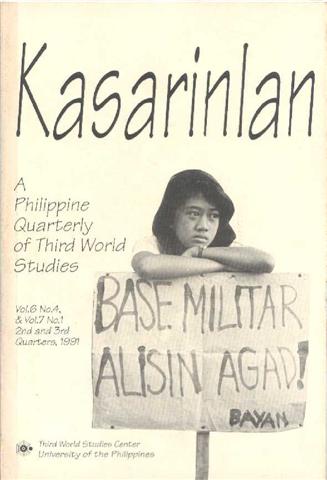Neo-Marxism: End of a Career or a Start of a New One?
Abstract
Neo-Marxists do not pretend to be value-free and that their work has a definite political message and objective. They contend that mainstream social scientists, in their study of development in the Third World, have unwittingly served the foreign policy interests of the developed countries. Neo-Marxists tend to be deductivists, in which their research is guided by a set of rules that define and give meaning to reality. Objectivity in this sense is understood to mean affirming the elementary rules of empirical research to fulfill better their commitment to the proletariat. Neo-Marxists assume that the world is one integrated whole. It follows from this that development of one part cannot be looked at in isolation from the underdevelopment of another, and that domination does not occur in a vacuum, but rather, it is a part of a process in which both the victim and the victimizer interact based on their relative access--or lack thereof-- to certain values resources, e.g. surplus labor, that are essential to the maintenance of an international division of labor. Neo-Marxists affirm the significance of material--as opposed to purely economic--factors in explaining development. And finally, on the revolutionary approach to socialism, neo-Marxists are much more open-minded that their classical counterparts in they do not regard it as an absolute and inevitable course.
Published
2008-06-25
How to Cite
BAUZON, Kenneth E..
Neo-Marxism: End of a Career or a Start of a New One?.
Kasarinlan: Philippine Journal of Third World Studies, [S.l.], v. 6, n. 4, june 2008.
ISSN 2012-080X.
Available at: <https://journals.upd.edu.ph/index.php/kasarinlan/article/view/963>. Date accessed: 28 aug. 2025.
Issue
Section
Features
By submitting a manuscript, the authors agree that the exclusive rights to reproduce and distribute the article have been given to the Third World Studies Center.



